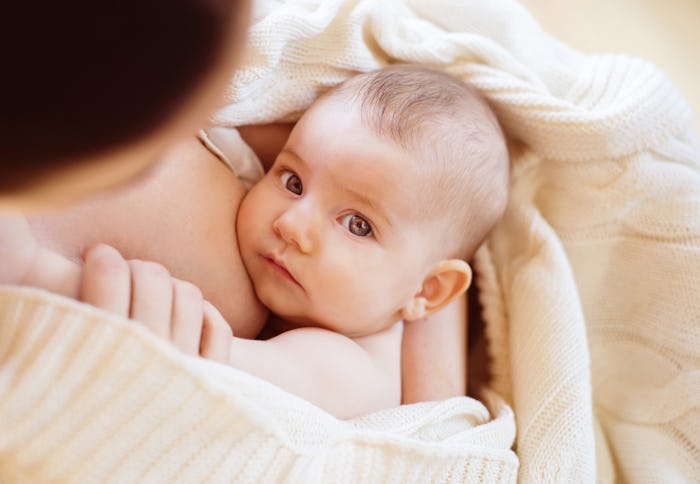Life

How Does Postpartum Anxiety Affect Breastfeeding?
No mother expects to come home from the hospital balancing a baby and a case of postpartum anxiety (PPA). You've pictured your life as a mom a particular way, and if you are suddenly overcome with intense feelings of worry or panic, it can affect your parenting, your physical health, and the way your nourish your child. An essential question to ask if you've been diagnosed with PPA is, how does postpartum anxiety affect breastfeeding.
Because some amount of anxiety is normal and expected, PPA can be mislabeled or go undiagnosed. But the reality is that PPA is serious and affects many women. In fact, a study in Pediatrics of more than 1100 new mothers found that 17 percent of moms showed symptoms of postpartum anxiety. Although many new moms have symptoms of PPA that begin immediately after the birth, it is not uncommon for these feelings to begin later and increase gradually over the first year of their baby's life, according to Psychology Today. If left untreated, Parents warned that postpartum anxiety can interfere with your ability to bond with your baby. The good news is that Postpartum Support International suggested that postpartum anxiety is temporary and treatable with professional help.
Here are some ways that postpartum anxiety can affect breastfeeding.
1Mothers With PPA Are Likely To Stop Breastfeeding Early
Dealing with the symptoms of postpartum anxiety is tough on any new mother, but especially so if she is breastfeeding. Breastfeeding takes work and commitment, which can be trying for a mom with a mood disorder. Dr. Marlene Freeman, associate professor of Psychiatry at Harvard Medical School and the Director of Clinical Services for the Massachusetts General Hospital (MGH) Center for Women’s Mental Health told Postpartum Progress that a mother’s wellness is more important than feeding method. "If breastfeeding adds to a woman’s depressive or anxious symptoms, it is reasonable to stop," she said. "Sometimes it is necessary to stop."
2Stopping Breastfeeding Can Increase Symptoms Of PPA
Giving up breastfeeding can be what some moms need in order to get better, but for other moms it can have the reverse affect. The MGH Center for Women’s Mental Health cited a 2012 study which found that breastfeeding cessation was associated with an increase in levels of anxiety and depression. The study concluded that women who experienced high levels of anxiety during pregnancy are at an additional risk for postpartum anxiety and depression if they stop breastfeeding early.
3Changing Your Breastfeeding Plans Can Trigger PPA
Changing a mother's breastfeeding plans can make her more vulnerable to PPA. The MGH Center for Women’s Mental Health has used data from an ongoing British study, the Avon Longitudinal Study of Parents and Children (ALSPAC), to learn that the highest risk of PPA was found among women who had planned to breastfeed, but ultimately ended up not breastfeeding their babies. The risk was also high in moms who had not planned to breastfeed, but ended up doing so after the baby was born.
4Bottle Feeding Can Help With PPA
According to Freeman, reserving time for sleep and and self care is essential for women suffering from mood or anxiety disorders. Moms with PPA can greatly benefit from the support of others in caring for their baby. One way that this can be achieved is by being open to giving your baby bottles of either pumped breast milk or formula so that someone else can take over baby duties for a little while.
5Medication Doesn't Mean Stopping Breastfeeding
Getting treatment early is the key to overcoming PPA as quickly as possible. Some healthcare providers may recommend medication to manage symptoms. This doesn't mean you have to stop nursing. According to Postpartum Progress, SSRI medication (like Zoloft) and benzodiazepines (like Klonopin) are usually very helpful in treating PPA and known to be safe for breastfeeding moms.